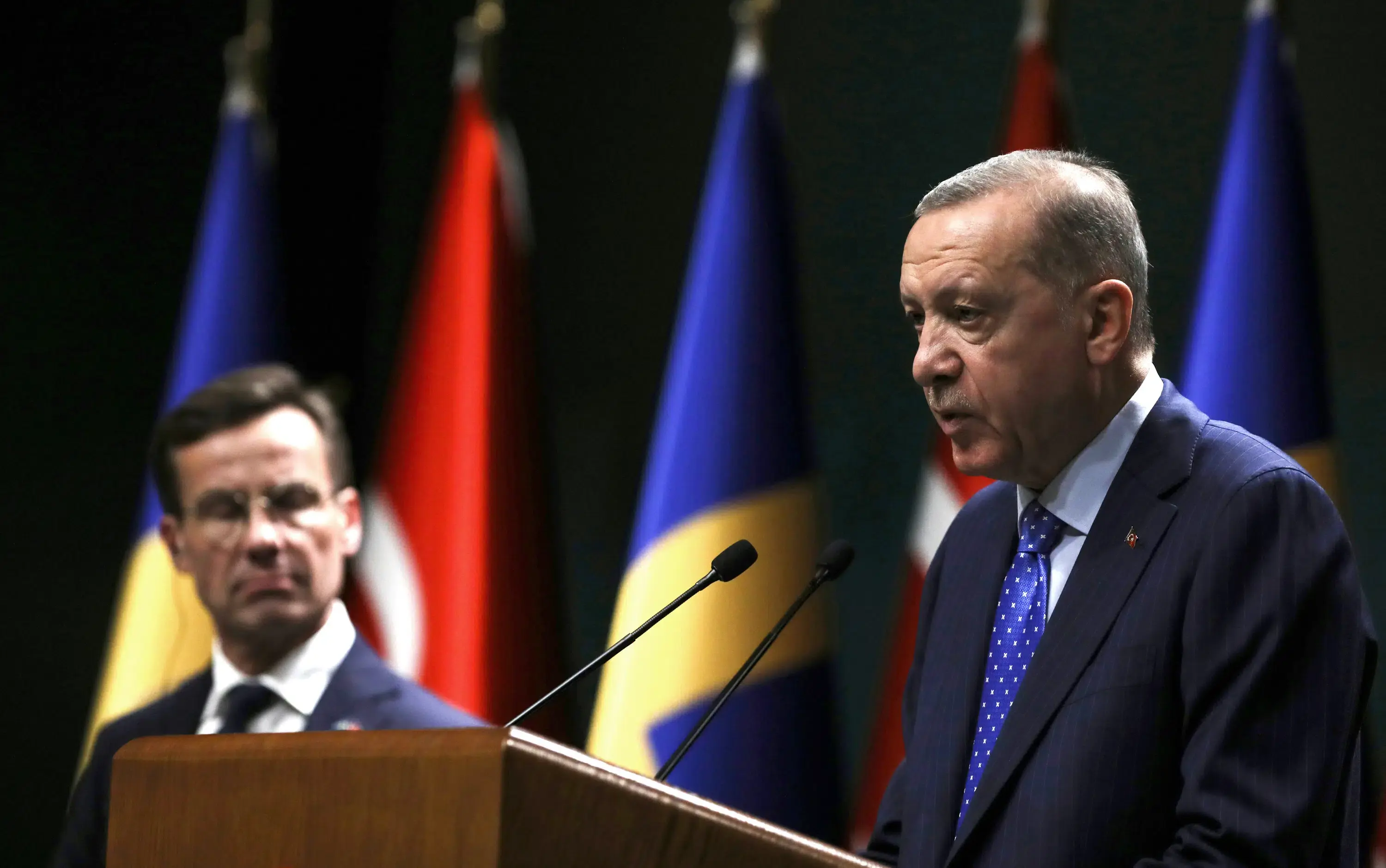Turkey’s government accuses Sweden of being too lenient toward groups that Ankara says pose a security threat, including militant Kurdish groups and people associated with a 2016 coup attempt.
A series of separate demonstrations in Stockholm, including a protest by an anti-Islam activist who burned the Quran outside the Turkish Embassy, also angered Turkish officials.
NATO requires the unanimous approval of all existing members to expand, and Turkey and Hungary are the only countries that have not yet ratified Sweden’s request to join.



Can member countries be “kicked out” of NATO?
I don’t think there is a specific process for that outlined in NATO’s treaty. However, Article 60 of the Vienna Convention on the Law of Treaties suggests a member country could commit a material breach of the treaty, if that nation that violated the principles of the treaty in a systematic and egregious manner. The decision to suspend or expel that nation would have to be a unanimous decision made by all other existing members.
There have been calls to suspend Turkey from NATO in the past, but there’s no precedent for suspending a NATO member, and that’s probably part of the reason why the member countries have been hesitant to do so. The U.S. in particular might not back the idea, since this would be very damaging to our diplomatic relations with Turkey in general. However, Hungary has been so pro-Russia lately that there may be a strong case for suspending them from NATO, and I don’t believe they’re seen as important as Turkey from a diplomatic standpoint, either. So, that’s a possibility if they continue to block Sweden from joining.
Unfortunately Turkey controls the Bosporus Strait which connects the Black Sea with the Mediterranean Sea (and the rest of the world). This makes the quite an important player since a large part of the Russian Navy is located in the Black Sea. Turkey is well aware of this of course, and know exactly how they can use this as a leverage against NATO.
Not really also it would cost two. Hungary and Turkey. And “Turkeys geographically location is to important” (god i want to put a uranium firework up lil wannabe putins ass)